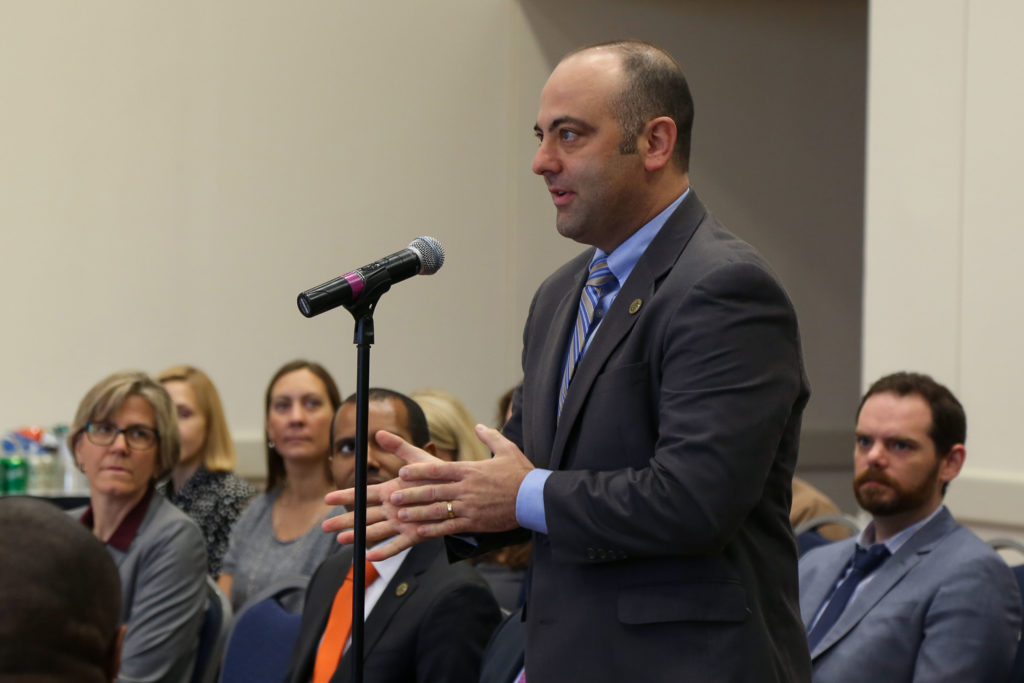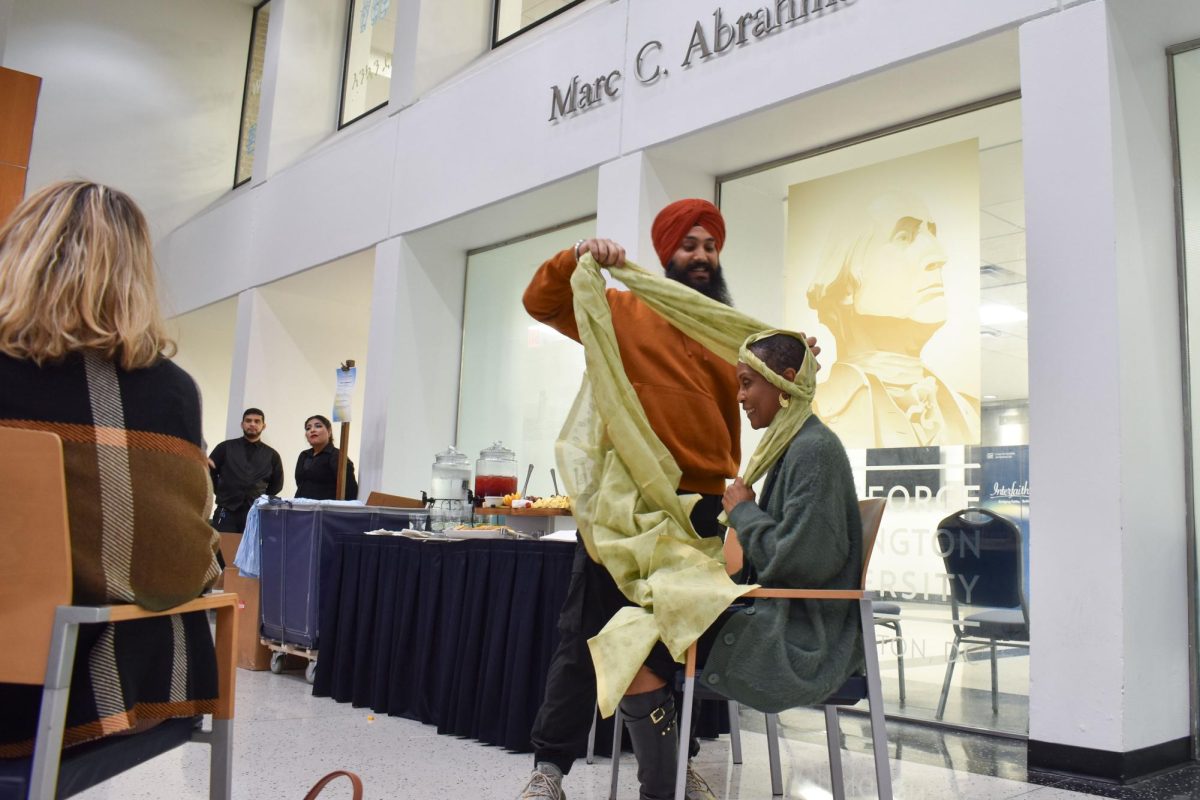Updated: Nov. 1, 2018 at 11:16 a.m.
Admissions officers are helping prospective students learn about financial aid options off campus.
Officials are hosting three regional financial aid workshops this month in Philadelphia, New York City and D.C. for prospective students and their families. Admissions experts said the workshops could alleviate stress for prospective students, especially those who can’t afford a campus visit, who are unsure about the types of financial aid packages they could receive at a relatively expensive school like GW.
Dean of Undergraduate Admissions Costas Solomou said the Office of Undergraduate Admissions partnered with the financial aid office to host three workshops – the first series of workshops hosted since officials piloted the program in D.C. in January. He said officials moved the workshops to the fall and included Philadelphia and New York City to “expand our geographic reach.”
Solomou said officials emailed prospective students and high school counselors to promote the events in each respective city and expect that about 20 high school students and their families will attend the D.C. workshop in its second run. The workshops are part of officials’ effort to “make the college application process easier for students and families,” he said.
“This programming complements the work we’re doing to help families better understand the financial aid process and the true cost of a GW education,” Solomou said in an email.
Solomou declined to say what the workshops will entail and what will be discussed during the workshops.
Admissions experts said financial aid workshops held off campus could ensure that prospective students who can’t afford to travel to campus for a tour or information session don’t cross GW off their application list because of its sticker price.
Jerome Lucido, the associate dean of strategic enrollment services at the University of Southern California’s Rossier School of Education, said the workshops could help students understand the “full spectrum” of financial aid available to them by including payment plans and other options for students to finance their four years at school.
“Well-informed applicants have a better chance of affording an education, perhaps taking out less loans and getting more value from their degree,” he said in an email.
Shannon Vasconcelos, the director of college finance at Bright Horizons Education and College Advising, a company that advises students on financing college, said by hosting financial aid workshops outside GW’s campus, low-income students could better understand that “GW may be within their reach after all.”
The Board of Trustees approved a 3.1 percent hike in tuition for next academic year, bringing the cost of attendance to nearly $71,000.
Vasconcelos said the workshops could also benefit students from “underserved school systems,” where high school financial aid counselors may not have the time or resources to provide students with proper financial aid information.
“Many students may cross an expensive private school like GW off their list based simply upon its sticker price and never make the effort to visit campus,” she said.
Cristiana Quinn, a counselor at College Admission Advisors, a company that offers high school students college application counseling, said the workshops could prevent students from shying away from GW because students often only look at the advertised price of tuition without considering the potential financial aid benefits.
She added that the workshops could benefit first-generation students who often need to navigate the financial aid and application process without the help of their parents. The pool of students applying to GW could become more diverse if low-income or first-generation students have the information needed to know they may be able to afford GW while they’re still sending in applications, she said.
“If they’re properly educated by seminars like these, then that may open up not just GW to them, but a world of opportunities in understanding that sticker price is very often not what families will pay,” Quinn said.
Lizzie Mintz contributed reporting.
This post was updated to reflect the following correction:
The Hatchet incorrectly reported that Bright Horizons Education and College Advising is a nonprofit. It is a for-profit company. We regret this error.





